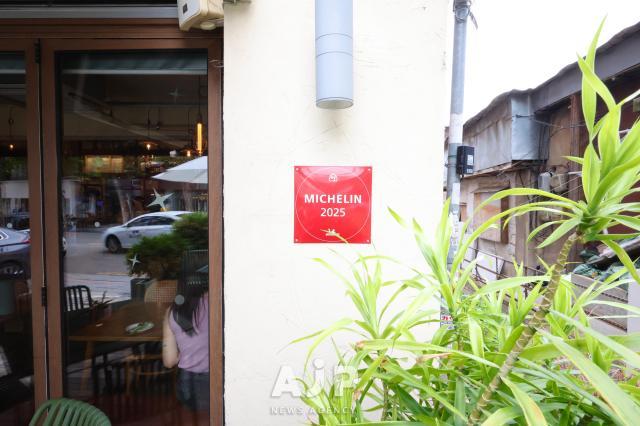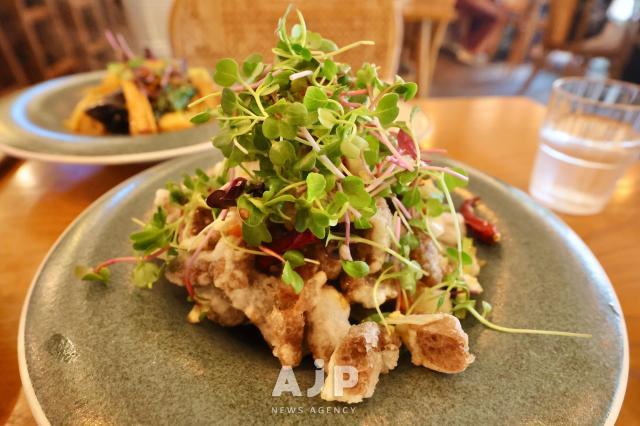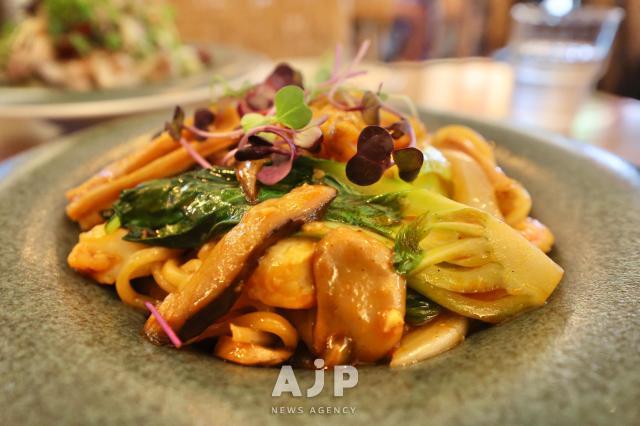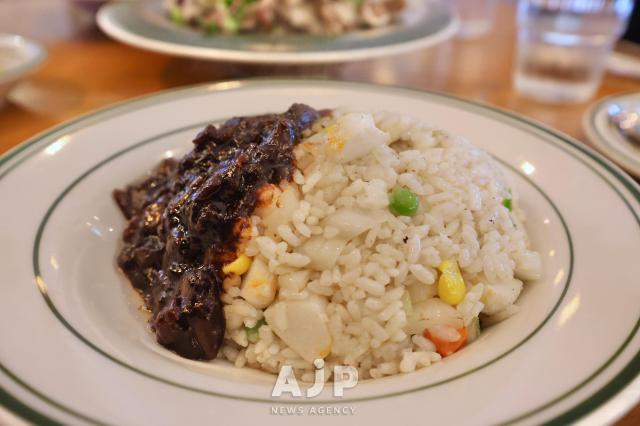
The tables are crowded with steaming bowls of shrimp fried rice, jjajangmyeon noodles slicked with black bean sauce, and glossy platters of deep-fried beef — or at least that is how it looks.
The restaurant, ALT.a, is entirely vegan. The shrimp, beef and pork are not from animals at all but from soybeans, lima beans and other plants, carefully engineered to mimic the texture, chew and flavor of meat.
ALT.a, whose dishes have won recognition from the Michelin Guide’s Bib Gourmand, is one of several experiments in South Korea’s growing but still fragile market for alternative proteins.
With the world’s population expected to reach 10 billion by 2050, and global protein demand projected to nearly double, scientists and food companies are racing to find replacements for livestock meat that are both palatable and sustainable.
The industry’s bets fall into three categories: plant-based meat, cultured meat grown from animal cells, and edible insects. Plant-based protein, for now, remains the most advanced — and in many ways the most practical — option.
South Korea is no stranger to plant-based proteins. Tofu, believed to have been introduced to the Korean Peninsula nearly 2,000 years ago, is as essential to local cuisine as bread and butter are in the West. Most instant noodles here already contain textured soy chunks that resemble meat, fooling many consumers into thinking they are eating beef.
The domestic market for vegan meat reached about 22.7 billion won, or $17 million, in 2020 and was projected to climb nearly 30 billion won by the end of this year, according to the Korea Agro-Fisheries & Food Trade Corporation.
Food giants like CJ CheilJedang have rolled out entire product lines of meat-free hamburger steaks, tteokgalbi (short rib patties) and rice balls. The company says its proprietary fermentation techniques remove the “bean smell” that has long plagued mock meats, while binding proteins more tightly to simulate the bounce and juiciness of animal flesh.
Promise and Struggles
Despite this, South Korea’s plant-based sector is struggling. Companies complain of high costs, weak consumer demand and overreliance on imported ingredients.
“With the exception of a few export products, we’ve scaled back most of our alternative meat operations to business-to-business sales,” Yoo Jin-sun, a manager at ALTist, the parent company of ALT.a., told AJP.
Zikooin Company, another producer, described the domestic market as sluggish. Government researchers echo that assessment.
“Almost all the firms approaching us lament the harsh conditions,” said Kim Min-young, a researcher at the National Institute of Crop and Food Science. “Most of the soy protein used here is imported, often genetically modified or low quality. Simply put, the plant meat doesn’t taste good enough.”


According to Kim Gi-chang, a researcher of food technology from the Rural Development Administration, the administration plans to intervene by promoting premium, non-GMO, locally sourced proteins and expanding research into hybrid meats — combining cultured animal cells with plant-based protein — as well as insect-based ingredients for medical use.
Officials are even weighing whether to introduce plant-based meals in school cafeterias.
“If implemented, students could enjoy tasty and healthy plant-based options while learning that synthetic meat is nothing to fear,” Kim Min-young from the said.
For now, though, South Korea’s vegan restaurants remain a niche curiosity rather than a mainstream option. On a recent evening in Itaewon, ALT.a’s diners seemed less concerned about the market dynamics than about the flavor of the dishes in front of them.
The “shrimp” fried rice glistened in the light. The jjajang sauce was sticky and rich. The “beef” was crispy at the edges and tender inside.
If the future of food was on the table, it was indistinguishable from the present.


Copyright ⓒ Aju Press All rights reserved.


![[K-Tech] From creepy-crawly to culinary contender: Companies bet big on edible insects](https://image.ajunews.com/content/image/2025/07/24/20250724084507564010_278_163.png)
![[K-Tech] LG CNS ventures into insect farming using AI-powered breeding technology](https://image.ajunews.com/content/image/2025/07/16/20250716104846487109_278_163.jpg)
